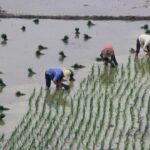Re-engineering the planet may be tougher than re-engineering humanity argues S. Matthew Liao, of New York University, in an article, Human Engineering and Climate Change published in Ethics, Policy & Environment. With the impact of greenhouse gases and rising atmospheric temperatures, and with the growth in human population expected to exceed 9 billion by mid-century, Liao and his co-authors, Anders Sandberg and Rebecca Roache, of Oxford University, create an argument for altering our species to better adapt to a changing world.
The arguments for this approach include:
- Human engineering may be potentially less risky than geo-engineering the planet to mitigate climate change.
- Human engineering could decrease human-induced climate change.
- Human engineering could solve many of our social and health problems and contribute to a more sustainable planetary footprint.
- Biomedical modification is already within sight with the mapping of the human genome and our ability to insert genetic information into the DNA of individuals suffering from genetically induced diseases.
Why would re-engineering us be better than re-engineering the planet?
- Geo-engineering is a very imperfect science and climate scientists are still trying to perfect models to explain the interaction between atmosphere, solar radiation, our oceans and land masses.
- Geo-engineering requires all nations to commit to a common strategy for reducing our carbon footprint. Humans have shown a disinclination to achieve any kind of consensus on a common approach to date.
- Ge0-engineering could have unforseen consequences that further damage the environment globally. We could create a runaway cold event or induce more rapid heating if we choose the wrong technological solution.
What kinds of changes would we consider making to humans?
- Make humans smaller so they need less to eat and use fewer resources.
- Make all humans vegans by genetically modifying them to not tolerate meat and thus free up land currently used for the meat industry and repurpose it for crops.
- Make humans less prolific in reproduction to reduce population.
- Make humans more sympathetic and altruistic to reduce war and conflict.
I recently read Margaret Atwood’s messianic novel of the future, Oryx and Crake. If you are not familiar with it, the subject focuses on bioengineering with outcomes darker than that suggested by the proposals made by Liao et al. The authors freely admit that human engineering solutions may be considered preposterous but if we are to survive as a species in a habitable Earth, it is an option worthy of debate.








